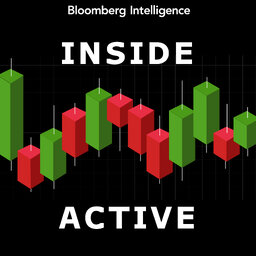Vanguard’s Reyes on Enduring Investment Merit
Since its inception, Vanguard has maintained that active investing — if delivered in a low-cost way — can play a meaningful role in a client’s portfolio, for investors who have the tolerance to take that on, says Dan Reyes, global head of investment product at Vanguard. On this episode of the Inside Active podcast, host David Cohne, mutual fund and active analyst with Bloomberg Intelligence, along with co-host Eric Balchunas, BI senior ETF analyst, speak with Reyes about the process of launching new active products, the trend toward active ETFs and the selection of external managers. They also discuss the evaluation of enduring investment merit of products and how Vanguard’s active lineup has evolved over time.
 Inside Active by Bloomberg Intelligence
Inside Active by Bloomberg Intelligence


